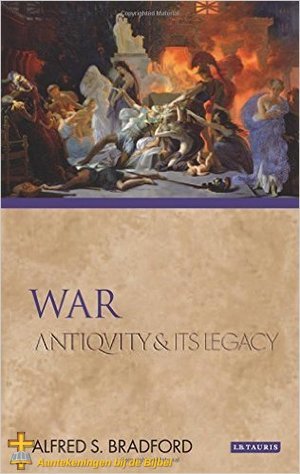
welke resulteren in allerlei aantekeningen.

Over 2600 years ago the Parian poet Archilochus wrote "we chased seven and killed them.. the thousand of us." In all parts of the world, and in all civilizations, the history of warfare, as well as the ironic humour of those who fight and die, can be traced back to the earliest records. But the vocabulary of modern warfare - army, military, strategy, tactics - derives from Greek and Latin, while metaphors of conflict similarly evoke ancient times. Such expressions and phrases as "Live by the sword and die by the sword", "Pyrrhic victory", and "arms and the man" are commonplace, and all come from the classical age. Wilfred Owen, famous soldier of the Great War, could write the bitter line "the old lie: Dulce et decorum est/pro patria mori" while expecting his readers to understand both Latin and allusion. Combining astute analysis of the logistics of conflict with the ethics of war, and drawing on a diverse range of cultural texts (from the Iliad to Hugo Grotius and von Clausewitz), Alfred S Bradford draws fascinating parallels between warfare and battle in ancient and modern societies. He shows that despite huge differences in weaponry and firepower, the basic principles of warfare have remained unchanged over thousands of years. War in the modern age is persistently illuminated by antiquity.
| Titel | War: Antiquity and Its Legacy (Ancients and Moderns) |
| Auteur | Alfred S. Bradford |
| Uitgever | I.B.Tauris |
| Jaar Verschenen | 2014 |
| Taal | en |
| Pagina's | pp. 192 |
| ISBN13 | 9781848859357 |
| Onderwerp | Oorlog |

Zie de huisregels welk commentaar wordt opgenomen!